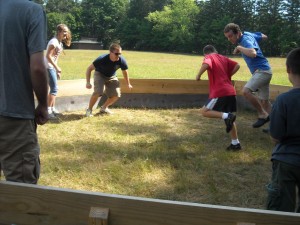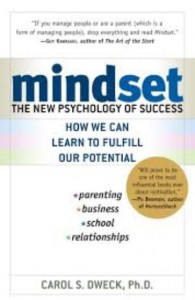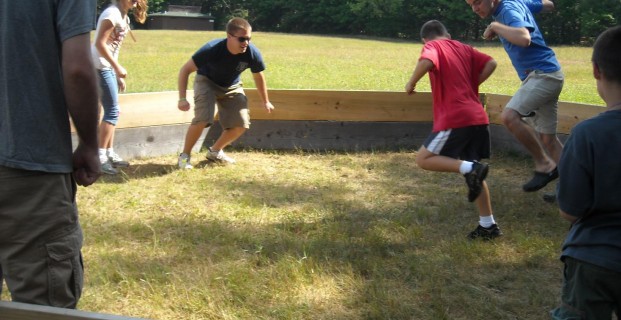The 5 Silver Bullets to Ending Bullying Part 3: Growth Mindset Acknowledgement
When we talk about bullying, we so frequently get bogged down in dealing with it once it’s already happened. And even a lot of the preventative measures that are suggested seem to be “band-aid” measures. Let me explain what I mean.
I recently spoke with Dr. Randall Grayson (the director of the magical Camp Augusta) regarding different counseling techniques, and he emailed me the following:
“There is nothing wrong with one’s self-expression of beliefs, as long as it is not offered OR heard with the idea that following such a belief is to be done BECAUSE of who I am, or someone else is, or some power structure. A change in behavior due to respect and rapport is quite different than one due to desiring/contingent relationship or favor, or blind obedience.”
In other words:
We don’t want kids to behave because they’re worried about what we think of them.
A powerful statement, and contrary to a lot of what I’ve read (and taught!). But as I worked the idea over in my mind, I realized it was very much in line with a lot of what I already believed.
A person’s behaviors are only modified in the long term if they feel motivated to modify it. Forcing people to go to drug rehab, for instance, is notoriously unsuccessful. Felons are incarcerated after being released from prison at a startling rate.
So how do we help children become motivated to “do good?” Enter step 3 in our silver bullets to curb bullying – Growth Mindset Acknowledgement.
Why did Jason hate Ga Ga?
To start, we’ll consider the story of a child we’ll call “Jason.” Jason came to Vanderkamp very excited to play one of our most popular games: Ga Ga. After the first game, I was puzzled as to why he looked forward to it so much. Jason was never more upset than when he played Ga Ga.
 Perhaps 75% of the time that something bad would happen to him in the game, he would sit down in a heap, sobbing into his hands. When asked what was wrong, he would scream accusations at other players and curse his misfortune. Even “winning” the game provided him no great relief, as a win was seen as something that should happen, not as a special occurrence.
Perhaps 75% of the time that something bad would happen to him in the game, he would sit down in a heap, sobbing into his hands. When asked what was wrong, he would scream accusations at other players and curse his misfortune. Even “winning” the game provided him no great relief, as a win was seen as something that should happen, not as a special occurrence.
It was easily the most glaring example of bad sportsmanship I have ever seen. What was going on?
Enter the psychologist
Carol Dweck, a psychology professor at Stanford University, made an incredibly important contribution to child development theory that helped us unravel things. In her 2006 book, Mindset, she suggests that many people in the world suffer from the idea that there are “fixed” qualities about them that are unchangeable. People with a fixed mindset believe that there are many innate qualities about them, that when taken as a whole, sum up their total worth. Many people have a tendency to think they have a certain amount of academic ability, or creativity, or kindness, or patience – when in fact we have plenty of evidence that suggests all of these traits can be actively cultivated.
 So why do people hold on to the illusion that these things are fixed? Dweck suggests that we are constantly communicating “fixed mindset” ideas to children throughout their young lives. We say things like, “Wow, you are so smart!” when a child accomplishes a task easily, thinking we have done a nice thing in affirming them. We will tell a child how adorable she is when she is wearing a new dress. On the surface, these seem like extremely nice things to say. I certainly recall times in my life where I had warm feelings upon being given similar compliments. The subtext of these compliments, however, tells a totally different story.
So why do people hold on to the illusion that these things are fixed? Dweck suggests that we are constantly communicating “fixed mindset” ideas to children throughout their young lives. We say things like, “Wow, you are so smart!” when a child accomplishes a task easily, thinking we have done a nice thing in affirming them. We will tell a child how adorable she is when she is wearing a new dress. On the surface, these seem like extremely nice things to say. I certainly recall times in my life where I had warm feelings upon being given similar compliments. The subtext of these compliments, however, tells a totally different story.
Take the child who was told how smart she was for accomplishing a task easily. This child has received praise for something she had absolutely no control over. She has been lead to believe that accomplishing something quickly means she is smart, and that that is a very good thing.
But what happens when she encounters a task that can not be accomplished easily? She will often resent the challenging task because it can not be completed easily, and she will feel that it is an affront to what she believed was a permanent and very important part of her. Sometimes she will be driven to overcome the task, but often times she will ignore the challenging task and find a task that reaffirms what she has been told about her smartness. I certainly had this experience in many endeavors growing up – languages did not come as easily to me as other subjects, so I largely ignored them.
Now consider the child who has been consistently praised for how beautiful she is. The people around her have placed a large importance on physical appearance, and she believes that she has a good physical appearance, so she feels fine about it being important.
The problem arises when she inevitably encounters someone who sends her a message that her appearance is not up to par. This might be a direct statement like, “You’re ugly,” or even just an implication – when someone she is courting rejects her. What is this child to do? She has been told that she is very valuable because of her appearance, but now people are suggesting her appearance isn’t very good. She might try and look to our culture for signs of beauty that can seemingly be controlled – one’s weight, the amount of makeup one wears, one’s clothing – and desperately try and improve herself in those areas. As anyone who has struggled with being self-conscious knows, this can be a pretty upsetting and lonely existence.
Dweck gives us the tools to avoid such an existence, and at Vanderkamp we employ them very seriously. You see, there are plenty of things you can affirm kids about that they are fully in control of and that are fully virtuous. We call praise of these types “growth mindset” praise, after Dweck’s book. Virtues that can be praised with a growth mindset are things like kindness, patience, generosity, compassion, and love.
We ask our counselors to avoid any fixed mindset praise at all, and the returns are incredible. Watching the burden that is lifted when a child is affirmed for something in his control is fascinating. For that child, praise is no longer something that comes after a demonstration of innate ability like athletic prowess or cleverness, it’s something that can be obtained in infinite quantities just by being virtuous!
How Jason Flipped a Switch
Let us return to the story of Jason. Since Jason was placing so much value on winning, the other counselors and I came to the agreement that we would stop praising winning and consoling those who lost altogether. Instead, we showed great enthusiasm whenever anyone demonstrated even modest amounts of positive attitude or sportsmanship, especially Jason. I recall Jason getting hit by the ball, and his face contorting into sadness. Before he could begin to cry, I ran over and said, “Jason! You’re showing amazing sportsmanship right now! Remember what we talked about earlier? This is a great chance to show even more sportsmanship!” He immediately smiled, and said, “Thanks!”
Another counselor followed up, saying, “Wow, it’s so much fun to play with people who are such good sports. Thanks, guys!”
 What followed was positively astounding. It was the first time we had gone to these lengths with growth mindset praise in Ga Ga, and we were glad that we had. Jason changed his attitude almost immediately. He even began praising people for their sportsmanship! We completely stopped keeping track of who won, and had several instances where a victory was handed over at the end of the game to a younger camper. There was even one game where everyone agreed to get out simultaneously so that everyone could win!
What followed was positively astounding. It was the first time we had gone to these lengths with growth mindset praise in Ga Ga, and we were glad that we had. Jason changed his attitude almost immediately. He even began praising people for their sportsmanship! We completely stopped keeping track of who won, and had several instances where a victory was handed over at the end of the game to a younger camper. There was even one game where everyone agreed to get out simultaneously so that everyone could win!
When we released campers from valuing themselves based on something they had little control over – winning – and placed huge value on something they could control – their attitudes – everyone felt free to happily enjoy the event.
These attitudes translated directly into the rest of their interactions in seemingly unrelated activities like nature hikes and arts and crafts. There is something particularly heart warming about watching a young girl help a 4 year old, and then look up at you with a look that asks, “Like this, right?” Without any forceful language, or threats, or dishonesty – an entire group of kids acted far more compassionately than they had been in a matter of 4 days.
Back to Bullying
“Whoa, James!” you might be saying to me through your computer (I can’t hear you, by the way – you’ll have to contact me if you want me to hear you), what does this have to do with bullying?”
It’s simple – children who do not value themselves will seek to find value by comparing themselves to others. One easy way to do this is to assert oneself in a dominating way, either physically or emotionally. If that child has seen that domination is praise-worthy (i.e., dominating others in a Ga Ga game, for instance), he may make the connection that other dominance is good as well.
But, when our camp culture stopped praising dominance, people generally stopped trying to dominate others.
A cultural shift around how we communicate with children takes time, but it IS possible. There doesn’t have to be any shame in it – no one is a bad person for telling a little girl her dress looks cute. But when we emphasize the stuff that really matters? Kids will hear us, and what’s more, they’ll do something about it.
This is part 3 in our 5 part series on bullying. If you missed the beginning, check it out here.

